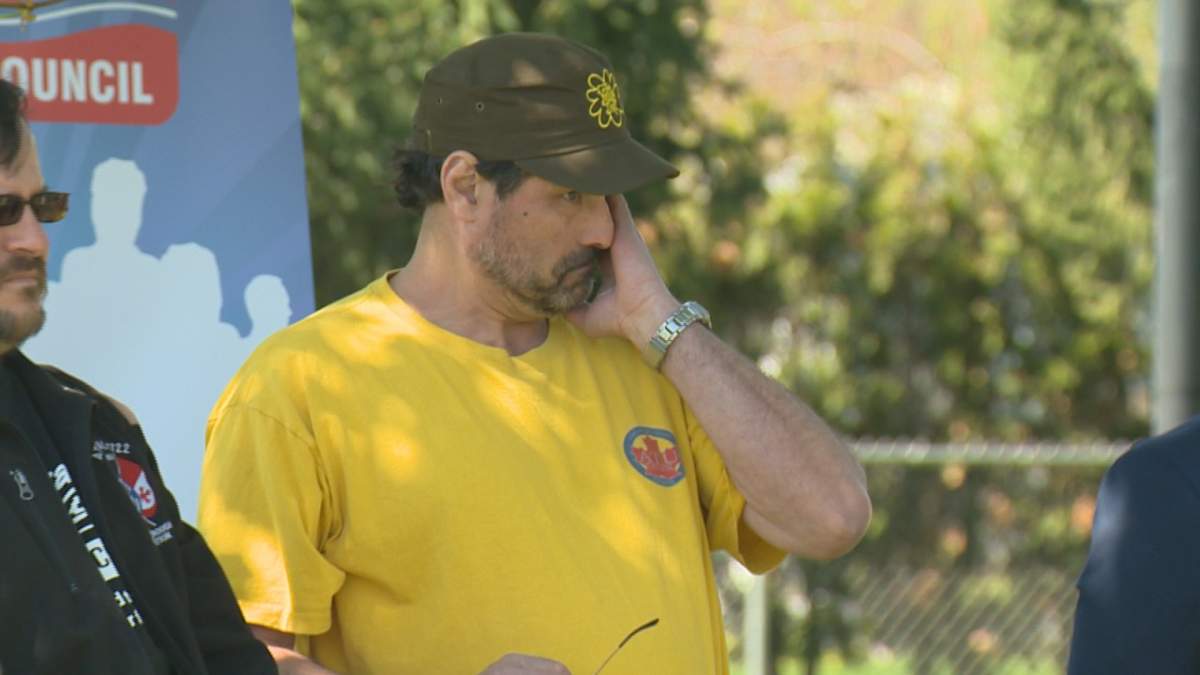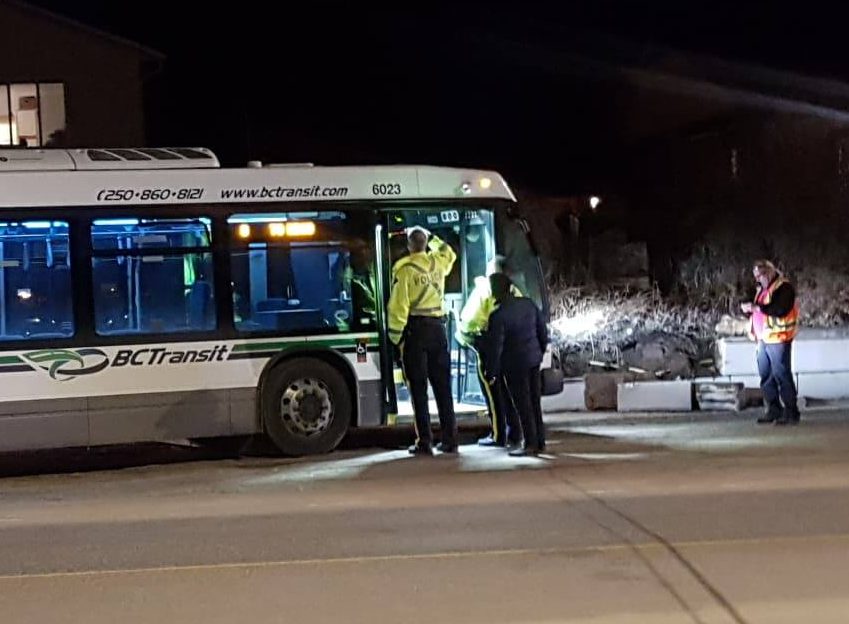The last thing Kelowna bus driver Peter Lansing remembers, from before the March 2019 assault, is turning his bus left on to Rutland Road.

“My memory stops at the next bus stop,” Lansing explains.
His next memory is of emergency workers flashing lights in his eyes as he looked out the door to see his his shocked supervisors, “their faces white as ghosts.”
While he didn’t understand what had so upset his coworkers at the time, he’s since learned that he was seriously assaulted.
It was an attack that not only put Lansing’s life at risk, but also many others.
During the incident, Lansing said, his bus crossed the road and sidewalks, eventually hitting a brick wall.
It was a Friday night in late March around 8 p.m., when the area is typically fairly busy, and Lansing believes it was incredibly lucky that no one was hit by the bus when he was assaulted.
“I had a very lucky day. I could have been killed. People on both sidewalks could have been killed,” Lansing said.

Get daily National news
“Traffic … could have run into the bus. A tractor trailer could have hit us head-on. The door was open; I could have been thrown out.”
It’s been more than a month since the assault, but Lansing said he is still feeling the impacts and thinking about the close call.
“I can imagine it might have been a nightmare for the people on the bus seeing the driver being assaulted.”
Lansing shared his story at a Day of Mourning event in Rutland on Sunday.
The annual memorial day is aimed at paying tribute to workers who die or are hurt as a result of their jobs and to advocates for prevention.
WATCH: Transit union reacts to driver assault that caused Kelowna bus crash (March 23)

While not all the stories are as high-profile as Lansing’s, B.C. tragically saw at least 131 workers killed on the job or as a result of work-related injuries or illnesses last year.
The list of traumas and illnesses that took the workers lives are as varied as their professions.
WorkSafeBC’s list includes a 70-year-old owner of a construction business that drowned when an excavator capsized in a tailing pond, a 19-year-old who was killed when they were hit by falling equipment while working as a tire service technician and a heli-ski guide who died as a result of injuries suffered in a avalanche.
Dozens in fields as diverse as carpentry, baking, wholesale, meat processing and teaching developed fatal cancers after being exposed to asbestos, while 10 people who worked as firefighters suffered the same fate as a result of “regular toxic exposure at fire scenes.”
Meanwhile, thousands of B.C. workers went on disability or filed health care claims.
They’re statistics that B.C.’s labour union, politicians and business leaders say should spur preventative action.
“The Day of Mourning is one of the most important dates annually. It’s a critical reminder of the importance of our workplaces having robust enforcement of regulations, ensuring consistent employer adherence to responsibilities, and that workers know their rights and exercise them,” said Stephen von Sychowski, the president of the Vancouver and District Labour Council, in a media release.
“One workplace death is too many, and it takes us all to make that a reality.”
In the Okanagan, a Day of Mourning event was held a Ben Lee Park in Rutland, organized by the North Okanagan Labour Counsil.









Comments
Want to discuss? Please read our Commenting Policy first.